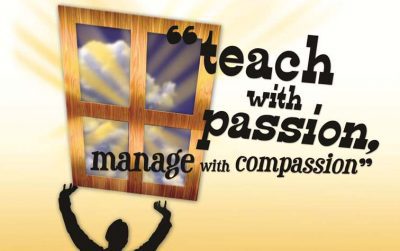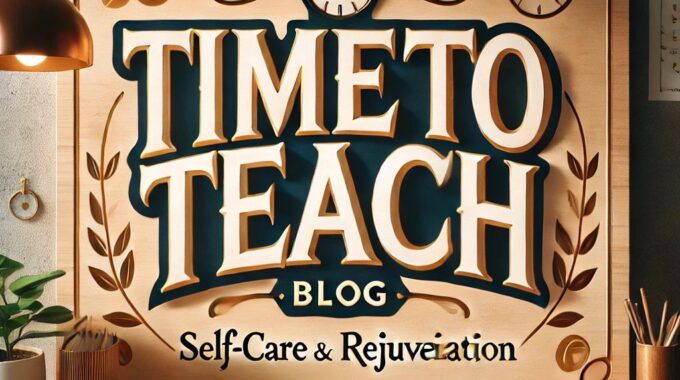As we turn the corner into spring, it’s the perfect time to refresh our teaching…
ISTE Certification 01
We believe in thanking our sources! This post was sourced from the following blog/website: http://dangerouslyirrelevant.org/2022/01/iste-certification-01.html
The following is a new blog post related to education and teaching and relevant to our website visitors. The blog post is not based on the opinions or values of our company but is related to education and teaching, so we wanted to share it with YOU! If you ever have any questions please let us know. Now… on to the post!
[I decided to make some new investments in my own learning this semester. One of the ways that I’m doing that is to try and become ISTE-certified. I’ve had a longtime relationship with ISTE. When we created the nation’s first graduate program designed to prepare a technology-savvy school administrator at the University of Minnesota (way back in 2003!), ISTE was one of our most important partners in that work. I served on the initial advisory board for ISTE’s Standards for Education Leaders (back then, they were the NETS-A) and in 2016 I received ISTE’s global Award for Outstanding Leadership. I have worked with ISTE in a number of other service and professional learning roles and currently am serving as one of ISTE’s Community Leaders. All that said, I never have worked toward ISTE certification until now. I’ll be sharing my thoughts and experiences as I go through the certification program this year…]
 I’m part of an awesome cohort. We represent a variety of job roles and responsibilities across multiple states and several countries, including both P-12 and postsecondary. I already can tell that I’m going to learn a lot from the other members of my cohort. We meet face-to-face every few weeks and also engage together in a number of asynchronous learning activities. So far we’ve met once and have been assigned to some small groups.
I’m part of an awesome cohort. We represent a variety of job roles and responsibilities across multiple states and several countries, including both P-12 and postsecondary. I already can tell that I’m going to learn a lot from the other members of my cohort. We meet face-to-face every few weeks and also engage together in a number of asynchronous learning activities. So far we’ve met once and have been assigned to some small groups.
Our early work has been focused on grounding ourselves in course expectations, assignments and deadlines, and introducing ourselves to each other and the ISTE Standards for Educators. ISTE also has invited us to reflect on what it means to be part of an online professional learning network.
One of our first activities asked us to reflect on some of our understandings, strengths, and challenges related to the ISTE Standards for Educators. Here’s some of what I wrote:
I orient toward design thinking so am probably most confident with Standards 5a, 5b, 5c, and 6c because they emphasize the (re)design process. I spend a lot of time redesigning lessons and units with P-12 teachers, instructional coaches, and principals. I also have done a great deal of program design work at the university level, including recently redesigning our principal licensure program at CU Denver. I’m also confident in Standards 2a and 2b because I’m a school leadership professor who works with school leaders all around the world on designing and implementing new visions for learning and implementation structures for deeper learning, greater student agency, more authentic work, and rich technology infusion. As a university faculty member who tries hard to integrate technology into my teaching, I think I’m doing a decent job with Standards 6a, 6c, and 7a. My students tell me that they appreciate my efforts in this area. Finally, I’m a strong user of social media tools and online platforms and have a large global professional learning network (so Standard 1b!).
As a university school leadership professor, I don’t deal too much with data, data privacy, copyright, coding, computational thinking, and other more IT-oriented and/or media literacy concerns. Accordingly, Standards 3c, 3d, and 6b aren’t really in my day-to-day domain. Standard 7c is hard for me simply because I have seen technology systems used too often to reinforce low-level factual recall, procedural regurgitation, and assessment and I am adamantly opposed to those traditional practices dominating the deeper learning practices that we should be implementing instead.
…
I’ve been using ed tech since the mid-1990s. I’ve seen a number of learning and productivity technologies come and go, so I think I’m a pretty savvy consumer of new tools and their affordances (or their lack thereof) and the mindsets that underlie them. I’m familiar with and am a regular user of a larger number of digital tools, including some old standbys like RSS and blogs that I think still have value in today’s social media-oriented world. I’m an unafraid and unapologetic learner and am looking forward to living in community with – and being stretched by – the other folks in this certification cohort.
My primary implementation struggle is time. As a research university faculty member who also happens to care deeply about my teaching, those often conflict with each other in regard to institutional expectations and reward systems. Now that I’ve been promoted to Full Professor, I’m hoping that I can spend more time on what I want, not what the university wants!
I’m looking forward to my continued learning and growth in this certification process as I work to strengthen my understandings of learning technologies and meaningful classroom integration. I’m also interested in the logistics of how ISTE structures and facilitates this course and am hoping to pick up some good tips for my own blended instruction.
More reflections from me in the weeks and months to come!
Time To Teach reviews each blog post by our contributors but if you feel this is a blog post better suited for another page please let us know.
Teachers and Educators are our heroes. We want to thank you for the work you do!
Yours In Education!
Time To Teach

